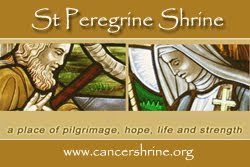In Chapter 3 of Thomas Keating's Manifesting God, we delve into the parable of leaven which states "The Kingdom of God is like leaven which a woman took and hid in three measures of flour till it was all leavened" (Luke 13:20-21).
Keating points out the taboo of leaven being consumed during the feast of Passover when all chametz (Hebrew for 'leavening') and it's products are removed from the Hebrew home. This Jewish law is so strict that it includes any item that is either fermented or can cause fermentation, such as yeast bread, certain cakes, alcohol, and corn syrup. The purpose is to honor the enslaved Israelites who were finally freed from Egypt, in the book of Exodus. Having left Egypt in such a hurry they could not wait for the bread to rise and so were left with unleavened bread for their journey.*
Jesus' mention of the use of leaven must have seemed very provocative to those following Him. If it represents slavery and corruption, then it must be seen as something to be avoided, not sought after. This would be a direct challenge to the people of the time, going against their preconceived notions of good and evil. Their first reaction must have been that of shock at the thought of comparing the two, as Keating points out.
When the leaven is not only likened to the Kingdom of God but done so in a hidden fashion, as Jesus remarks. The immoral implications are unmistakable to the Isrealites. Following the law assured them their lives were on the holy path, so how could Jesus say that God is hidden in the worst of places?
The explanation Keating offers is that their attitudes, and ours, of God are too limiting, "The Christian path is not about defining God, but of enlarging our idea of God. Even with the help of doctrine, rituals, good deeds, and moral certainties, without the experience of God's mercy and forgiveness, we do not really know who God is."
The parable focuses attention on the common tendency to impose our view of good and evil on the way we live, says Keating, and has made us "incapable of finding God in what, in our view, is moral evil. ..Actually, something that we do not want to happen may actually be the best thing that could possibly happen to us." Finding the Kingdom in the very thing we are avoiding demonstrates God's work for us is far beyond what we think of as our best of intentions. Keating points out, "A tragedy or disaster may be the only set of circumstances that can move us beyond our prepackaged values and preconceived ideas to a deeper level of relating to God in trust, self-surrender, and love."
During our Centering Prayer discussion period, leaven (yeast) was described as a rotting, fermenting organism, but also the only element that turns a nothing product such as flour into something to be sought after. Without yeast, water and flour combine into a body-less food that may have some nutritive value but very little appeal. Unleavened bread is hard, flat and falls apart too easily. It is the quick and easy recipe that has no time for a foreign matter which seems to work on its own mysterious terms.
If the leaven represents God, we must learn to trust Him to provide us with the lessons He wants us to learn, when He wants us to learn them. He hides these because He is calling us into the most loathsome of places, everywhere we'd rather not go. It is only then that He graces us with the opportunity to trust in Him as He takes and guides us. No matter how scary it gets, we must remind ourselves He is with us and in control.
"In the indignities and sufferings that we may experience, what is most painful is not what happens, but our attitude to what happens," says Keating. "This is why when we pray for deliverance from evil, God often does not take away our difficulties but joins us in enduring them...To suffer in union with Christ is to offer to those we love and try to serve the greatest of all gifts, the one we have been freely given: God's unconditional love."
*Source: Wikipedia: Passover
Sunday, September 12, 2010
Wednesday, September 1, 2010
The Great Banquet
In chapter two of "Manifesting God", Keating relates the parable of the great banquet (Luke 14:16-23) as an example of the offerings in the Kingdom of Heaven.
The parables begins as the elite householder prepares a huge banquet dinner and invites all the town's wealthy. However, when the rich refuse his noble invitation with their poor excuses, the householder becomes enraged and decides to hold the party anyway.
He has his servants round up "the blind, the lame, the halt, the maimed and the poor, so my house may be filled." Even then, the banquet is not yet filled in number. In further frustration he is moved to find more attendants. In addition to the poor and disabled, he insists his servants bring in the least desirable of all; the prostitutes, tax collectors, the disreputable and any other social outcasts.
Finally, this does the trick and the hall is full to capacity, though not necessarily with those choosing to be there. The final straw is drawn when the householder voluntarily chooses to suffer self-humiliation by joining the crowd for the feast, which is an unheard act for those of such high status such as he.
The significance relayed by Keating in the parable exemplifies how the Kingdom of God is no longer a place for the "chosen" as was once widely thought at the time, but is available to everyone, even those who may dismiss it (those forced to attend). Although it is hard to see the householder as a hero in this parable since he seemed to be acting at times only to save face, he demonstrates the path God took by allowing his divinity to become that of a lowly man, Jesus.
Jesus accepted public humiliation to make a connection for our benefit and understanding, just as the householder finds out the direct road to God is through humility, not wealth and status. The guests also come to see this as well. Though perhaps having been forced to attend the banquet of someone whom they may have harbored much resentment, they find the unapproachable elite class can be met on the same road, the only road, of the Kingdom of God.
The parables begins as the elite householder prepares a huge banquet dinner and invites all the town's wealthy. However, when the rich refuse his noble invitation with their poor excuses, the householder becomes enraged and decides to hold the party anyway.
He has his servants round up "the blind, the lame, the halt, the maimed and the poor, so my house may be filled." Even then, the banquet is not yet filled in number. In further frustration he is moved to find more attendants. In addition to the poor and disabled, he insists his servants bring in the least desirable of all; the prostitutes, tax collectors, the disreputable and any other social outcasts.
Finally, this does the trick and the hall is full to capacity, though not necessarily with those choosing to be there. The final straw is drawn when the householder voluntarily chooses to suffer self-humiliation by joining the crowd for the feast, which is an unheard act for those of such high status such as he.
The significance relayed by Keating in the parable exemplifies how the Kingdom of God is no longer a place for the "chosen" as was once widely thought at the time, but is available to everyone, even those who may dismiss it (those forced to attend). Although it is hard to see the householder as a hero in this parable since he seemed to be acting at times only to save face, he demonstrates the path God took by allowing his divinity to become that of a lowly man, Jesus.
Jesus accepted public humiliation to make a connection for our benefit and understanding, just as the householder finds out the direct road to God is through humility, not wealth and status. The guests also come to see this as well. Though perhaps having been forced to attend the banquet of someone whom they may have harbored much resentment, they find the unapproachable elite class can be met on the same road, the only road, of the Kingdom of God.
Subscribe to:
Posts (Atom)










